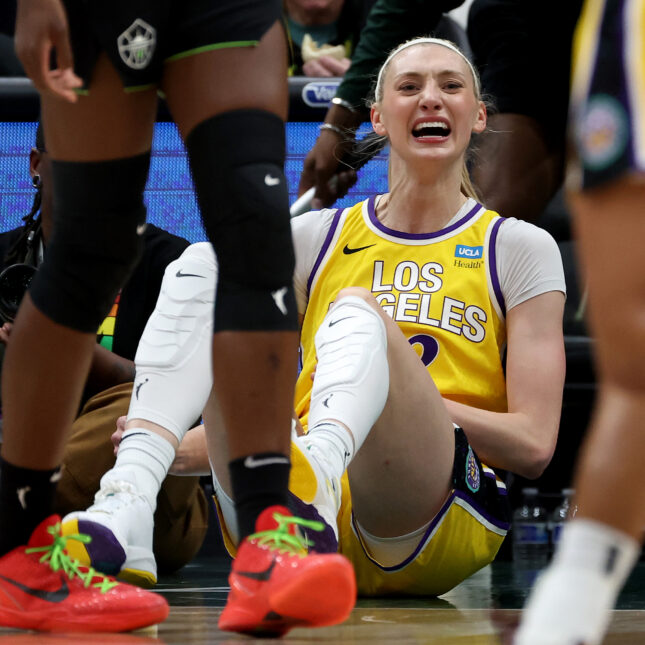
Some of the world’s finest athletes were sidelined by a torn anterior cruciate ligament (the ligament that helps stabilize the knee joint) long before the torch was lit for the Paris Olympics. The list of women competitors with ACL tears is stunning. Basketball player Cameron Brink, rugby medalist Shiray Kaka, gymnast Asia D’Amato, and several other athletes will not be competing because of this all-too-common, season-ending, and potentially career-ruining injury.
It’s time for more answers about why women athletes — of all skill levels and in all sports — disproportionately experience this painful injury. Women are three to six times more likely than men to endure an ACL tear.
Sports medicine is my medical specialty. But the issue of ACL injuries also hits home for me because, as a young athlete myself, I heard repeatedly that a tear of the ACL was simply a matter of time. I worked to compete in several sports without allowing that possibility to undermine my mindset and performance, even as friends and fellow athletes injured their ACLs. I don’t want future generations of young female athletes to have the distracting voice in their heads telling them they will get hurt.
For that to happen, they need more information about their bodies and their health as it relates to athletic performance. But here’s the problem: though women comprise about 50% of athletes, only about 6% of sports injury research focuses on women.
Theories about why women are more likely than men to tear this ligament vary. Some research has focused on the mechanics of how women athletes train and what role, if any, the size of the ACL and the alignment of the hip and knee joint may play in boosting the likelihood of injuring this ligament.
Researchers are looking to see if hormones may be involved, and have found that estrogen can contribute to an increased laxity, or stretchiness, of ligaments like the ACL. In the second half of the menstrual cycle, fluctuations in the hormone progesterone may reduce the body’s ability to recover from physical activity, so it’s possible that women need to adjust their training and recovery. But whether that makes them more prone to injury at the beginning of the next cycle isn’t known.
Several colleagues and I are partnering with approximately 180 female university athletes to see whether their risk of injury increases during a particular phase of the menstrual cycle due to hormonal shifts. We also are examining how factors such as sleep, recovery, training protocols, scheduling of games, and mental health relate to injury.
Understanding what causes ACL tears is important information for female athletes to have. There are several reasons they don’t have it — yet.
I’ve encountered some hesitance to support this research, hearing that hormonal shifts that women experience can confound data, or that studying elite athletes is studying extremes. I believe that insights gleaned from our research will help far more than world-class athletes — it will provide crucial information for high-school athletes, college club players, and everyday athletes such as women exercising at the gym.
Information about female athletes is hard to come by because medical research for women tends to center on reproduction or menopause. Female athletes get lost in the calls to support research for women because their hormones have been thought to be too complicated to study. It’s also common for women to seek care to treat sickness, rather than inquire about promoting wellness, which can include injury prevention or performance optimization. It’s time to make more of those conversations happen.
I hope that answering questions about the health of women athletes will keep them safe and ease the way for more women to pursue and initiate those discussions. As someone who has been an athlete her whole life, I’ve never been comfortable with the supposed inevitability that I might someday endure an injury like an ACL tear — and I certainly don’t want that fear to hinder female competitors before they have their chance on the world stage.
Amy West is a board-certified sports medicine physician at the Northwell Health Orthopedic Institute and an assistant professor of orthopedic surgery and physical medicine and rehabilitation at the Donald and Barbara Zucker School of Medicine at Hofstra/Northwell.
LETTER TO THE EDITOR
Have an opinion on this essay? Submit a letter to the editor here.
To submit a correction request, please visit our Contact Us page.









STAT encourages you to share your voice. We welcome your commentary, criticism, and expertise on our subscriber-only platform, STAT+ Connect